The autumns in Durham, N.C., rarely disappoint.
The Eno River courses through the northwestern side of the city as the lush greenery—which plays summer host to a popular swimming hole formed by the excavation of stone used to construct one of the state's main arteries and a small annual music festival—turns shades of red, orange and brown before leaving their home branches to coat the forest floor's trail system marked by wildflowers, wilderness and tranquil riverbanks. Downtown, the Durham Bulls wrap up their baseball season and crowds at The Parlour ice cream shop begin to ebb along with the temperature while the city's universities and schools commence a new year, welcoming new and returning students.
The only times the Durham autumns disappointed were on Saturdays at the field at Wallace Wade Stadium, the home of Duke football.
In the 30 years before Duke hired David Cutcliffe in December of 2007, the Blue Devils had averaged about three wins a year. The last time Duke had won a bowl game, Dwight D. Eisenhower was president and the year was 1961.
Duke had once excelled in football, producing three Pro Football Hall of Famers, headlined by quarterback Sonny Jurgensen. But the program had lost its way for decades at a time. Steve Spurrier brought Duke back into the national spotlight in the late '80s but became a hot commodity and left Durham for Gainesville, where he would help build a Gator dynasty Duke could only dream of and pine for from afar.
After Spurrier left, the Blue Devils and their program crumpled. To say they mired in mediocrity would be kind. In 1996, 2000, 2001 and 2006, Duke didn't win a single game all season, and the seasons in between reached four wins at best, with one post-Spurrier bowl game in 1994 preceeding a rather dreadful stretch.
In addition to plenty of other factors, Duke's football program lacked direction, but David Cutcliffe would change all that.
Emerging from the shadows
Although Duke football was rarely a point of pride for students and fans, whatever disappointment and embarrassment they experienced was easily sloughed off because Mike Krzyzewski's Blue Devils basketball team was consistently good enough to be the rising tide that lifted all boats. From Krzyzewski's hiring in 1980 to 2008 (Cutcliffe's first season), the basketball team won more than 70 percent of its games while the football team lost more than 70 percent of its contests.
Images from quarterback Peyton Manning's workouts at Duke University.







While teams led by the likes of Christian Laettner, Grant Hill and Jay Williams brought the basketball spotlight to Duke, the football team continued to try to find its way amid dwindling public perception in the shadow of the basketball program. However, there was probably no better time to lose every football game in two straight seasons than when Williams was an All-American in those back-to-back years with the team winning a National Championship in 2001.
As Duke treaded water in the '90s, Cutcliffe was with the Tennessee Volunteers, who found themselves rivals with Spurrier in the newly expanded SEC.
Beginning as a part-time assistant coach in the early '80s, Cutcliffe worked his way up, becoming a tight ends coach before moving on to coach running backs in Tennessee's 1989 SEC championship season, and then he went on to quarterbacks before moving into a larger role as an offensive coordinator in 1993 under head coach Phillip Fulmer.
In 1994, a quarterback named Peyton Manning, the son of NFL quarterback Archie Manning, arrived in Knoxville. Manning, Fulmer and Cutcliffe would help lead Tennessee to an impressive record that included an SEC championship and a 40-9 record over four years. Cutcliffe would win a national championship the year after Manning left, and then Cutcliffe left Tennessee to become a head coach at Mississippi, where he would coach Peyton's brother Eli, become the SEC Coach of the Year and Cotton Bowl Champion.
Cutcliffe returned to Tennessee in 2006 but would leave after yet another 10-win season for the Vols when he got the chance to become head coach again. This time he would take the reins at a school with a much less storied program, but one he was eager to mold.
"It's been fun," Cutcliffe said. "It really has — wherever you do get a chance in your career to build something from the ground up, and we've been able to do that here."
Duke football had gone by the wayside, becoming an afterthought or laughingstock, and Cutcliffe had more than enough experience to rebuild the program, which is something the coaches in the last decade or two couldn't say.
"No offense to anyone involved in Duke football, but I mean, really, there was just no one having an idea of how to go about this," Cutcliffe said. "The people that cared were living in the memories of the '60s and '50s or early '60s, I should say. There were a couple blips on the radar screen of a win here or there, but last bowl game won was '61. The only two bowl games from that time on were '88 and '94, but it wasn't a program that was built — it was just a blip. So being how it worked out for us, I don't think any of us knew it was as far away as it had gotten."
Building from the ground up
Having coached for so long in the SEC, the first thing Cutcliffe knew he had to change was his team's speed.
"You can't play this game if you can't run and move your feet, and that's really any position," he said. "And so we focused on recruiting speed and also focused on our development, just our strength and conditioning and that's really impacted our program. [...] We're a highly conditioned, fast football team. That's what I would call us."
With the help of better-conditioned and quicker players, Cutcliffe began building the scaffolding of a team he felt he could win with.
Flip through photos of Duke's top draft prospects who helped revitalize their football program.
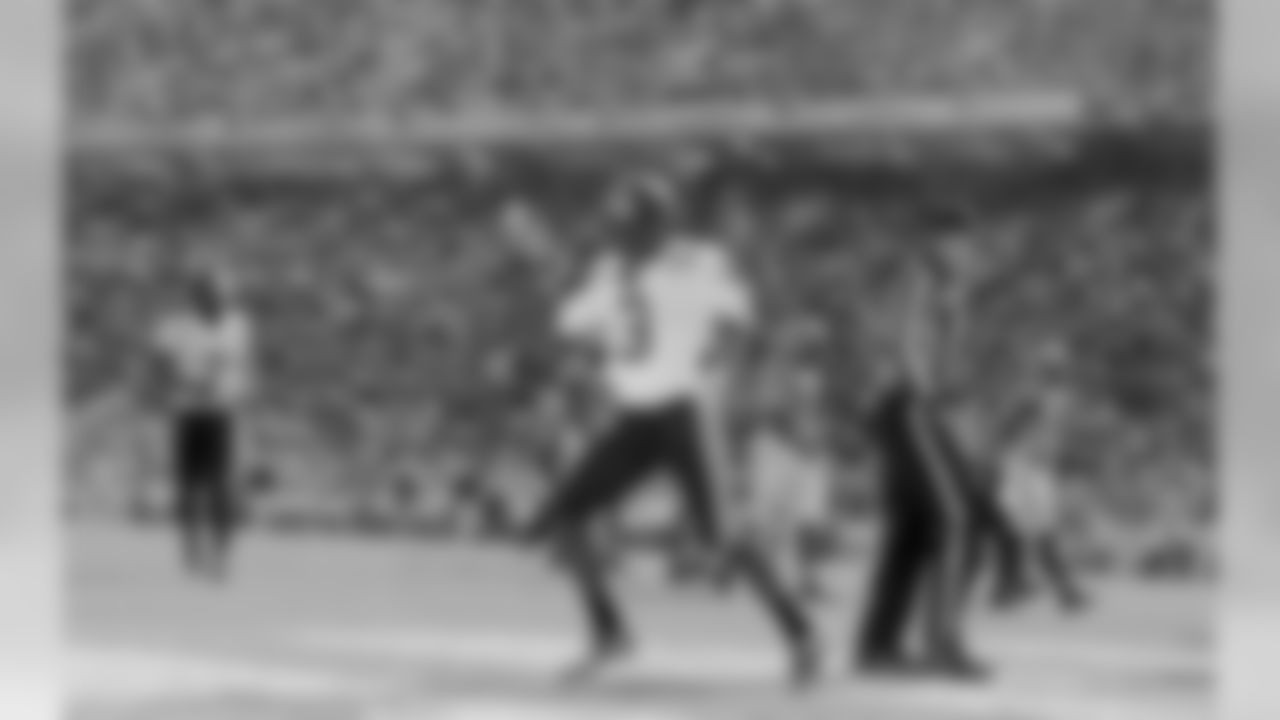
Duke wide receiver Jamison Crowder celebrates his touchdown against North Carolina.
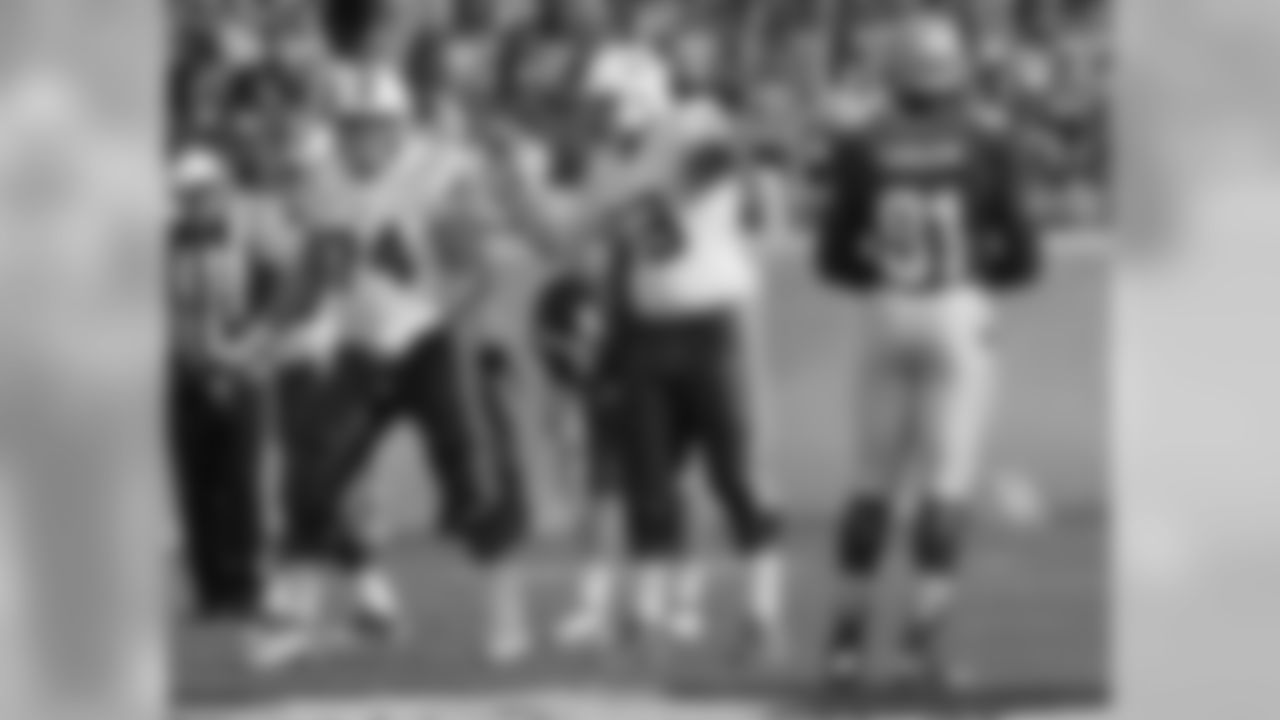
Duke lineman Takoby Cofield points out Florida State's Cornellius Carradine as Duke's offense adjusts at the line.

Duke quarterback Anthony Boone stiff arms Vetrick Bonner of Virginia Tech as Boone looks to run the ball.
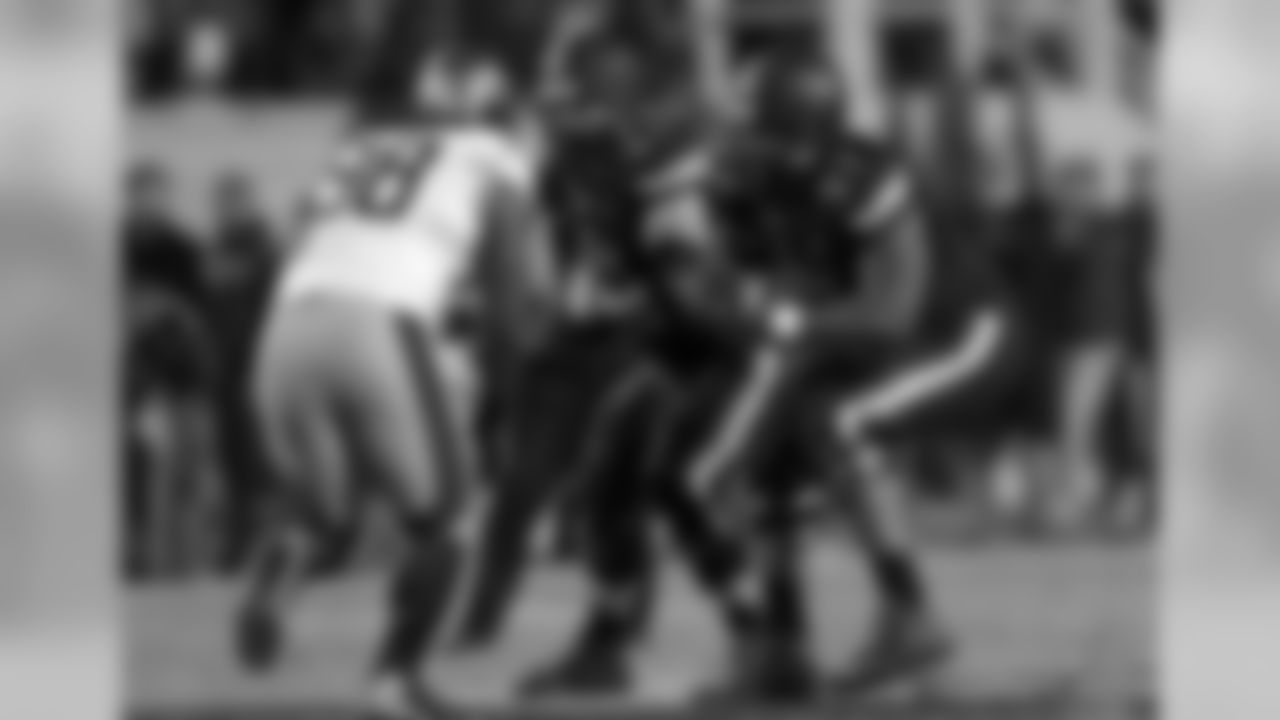
Duke lineman Laken Tomlinson (77) defend against North Carolina's pass rush.

Duke receiver Jamison Crowder reaches for a pass in North team practice for the 2015 Senior Bowl.
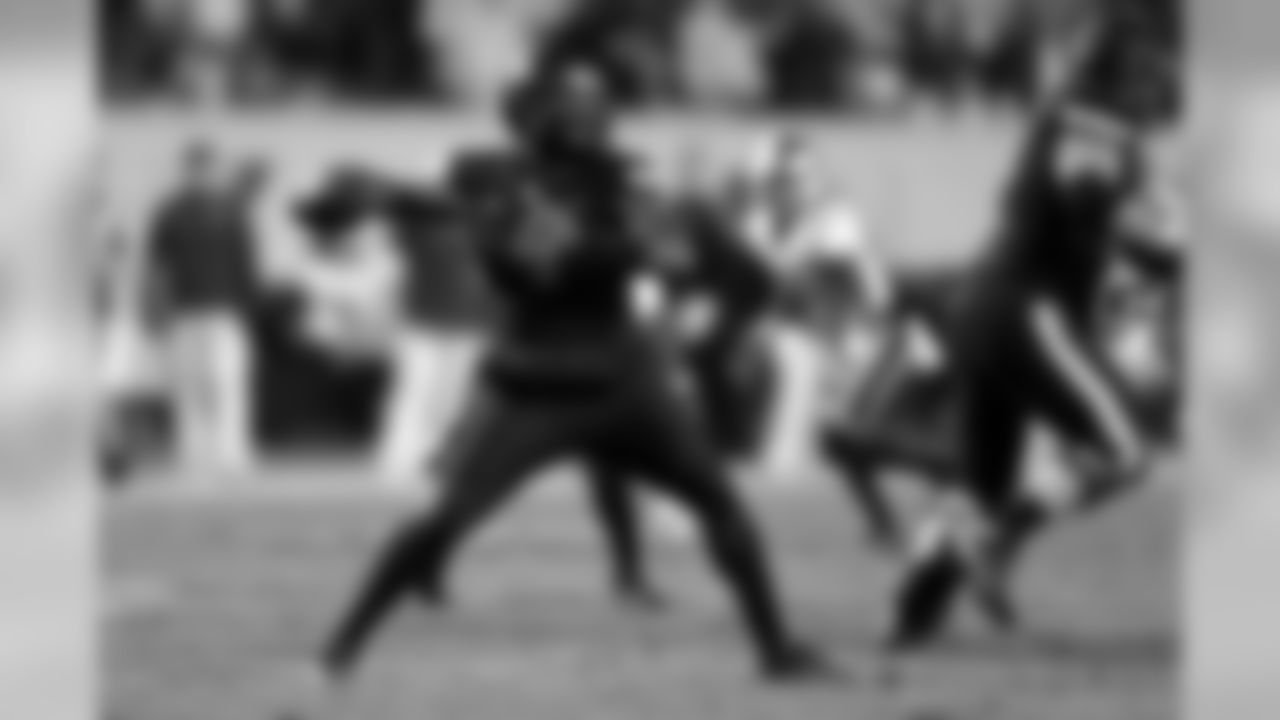
Duke quarterback Anthony Boone prepares to pass against North Carolina.

Duke lineman Laken Tomlinson goes through drills before playing in the Hyundai Sun Bowl.
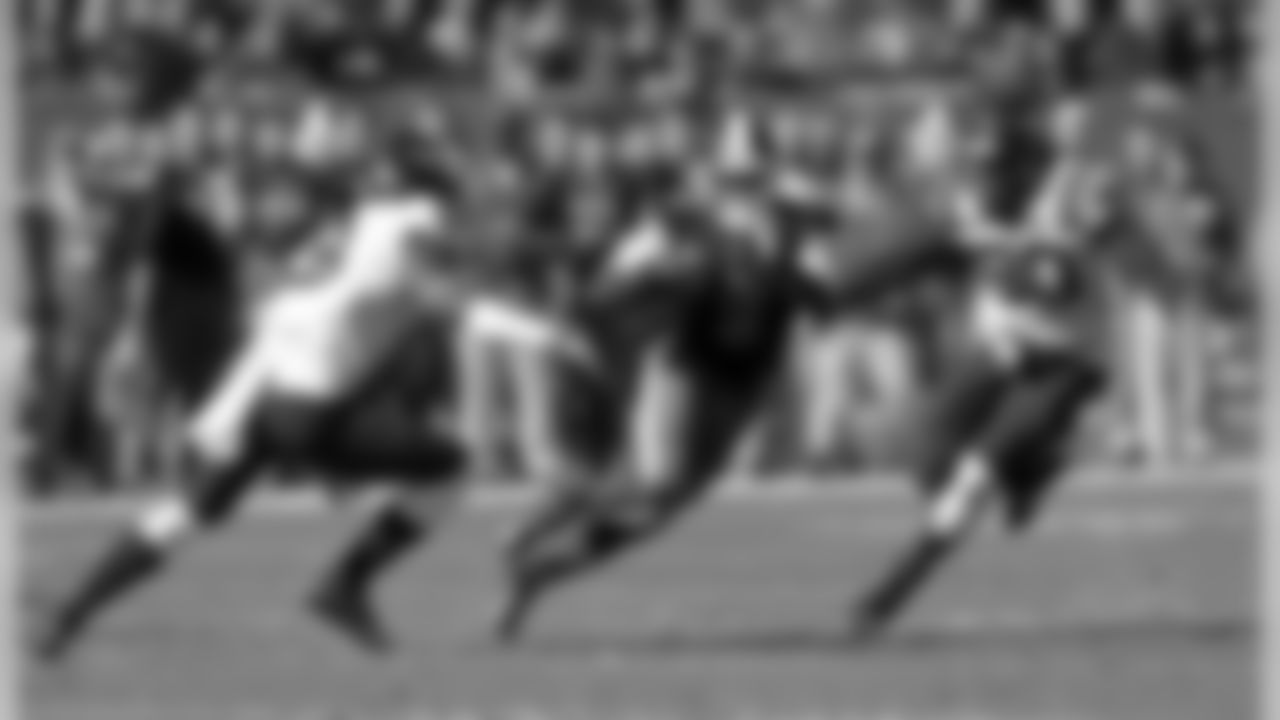
Duke receiver Jamison Crowder splits two Virginia Tech defenders as he tries to run the ball upfield.
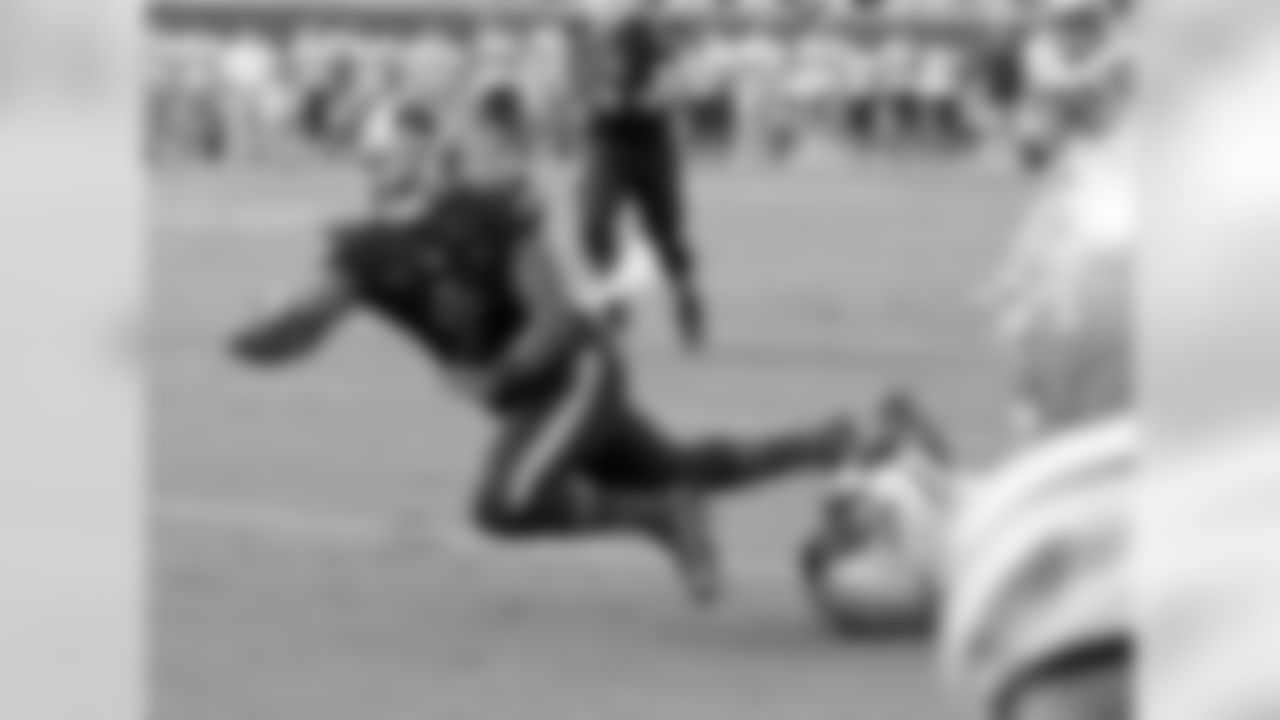
Duke quarterback Anthony Boone stretches for the goal line against Georgia Tech.
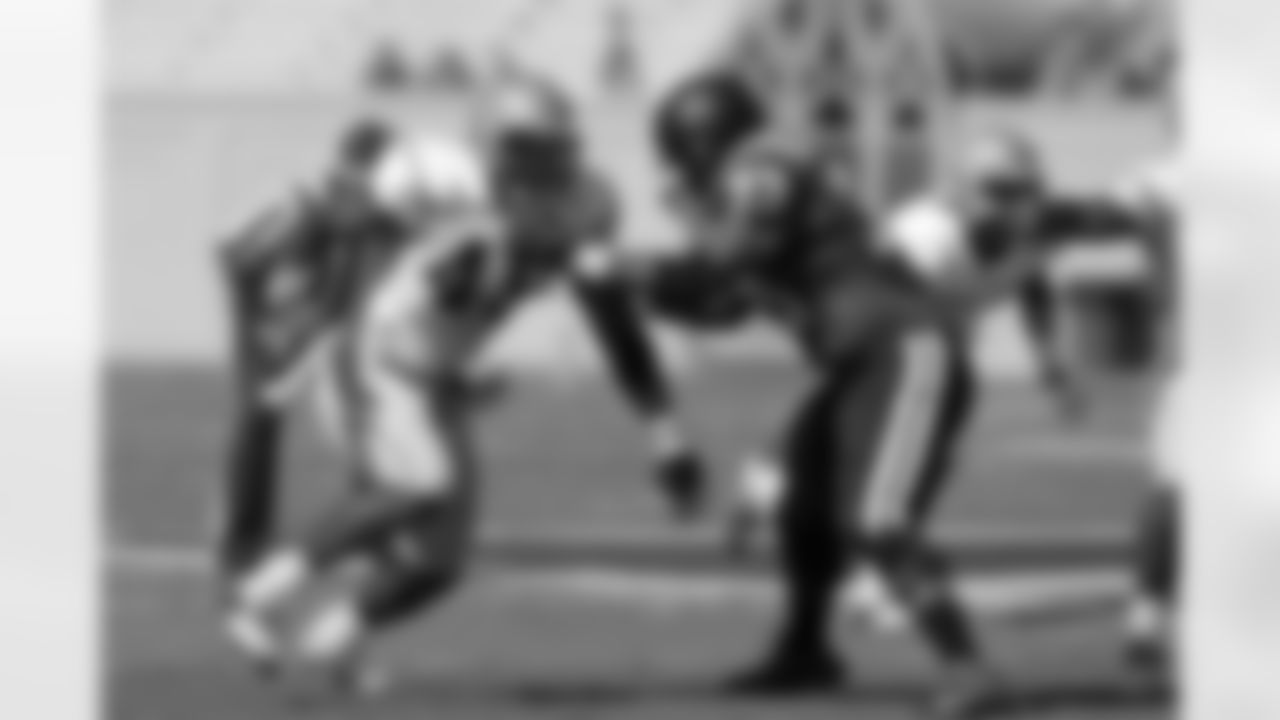
Duke lineman Takoby Cofield blocks Georgia Tech's Jeremiah Attaochu.

Duke wide receiver Jamison Crowder goes up for a catch over North Carolina's Sam Smiley.

Duke offensive lineman Laken Tomlinson poses for a portait during the 2015 NFL Scouting Combine.

East quarterback Anthony Boone of Duke winds up for a pass in the East-West Shrine game.

Duke offensive lineman Laken Tomlinson warms up before the Blue Devils' game against the Miami Hurricanes.

Duke offensive tackle Takoby Cofield (73) and running back Shaun Wilson (29) celebrate Wilson's touchdown against Pittsburgh.
As for the foundation, Cutcliffe has been on enough recruiting trips to know what's important in a prospect. He looks for character, which he sees far too many people overlook or disregard, and he sees an indicator of that in the transcript, but not necessarily in grades. Obviously, Duke has its own academic bars that players need to meet to remain eligible, but Cutcliffe needs to see more than that to find what he wants to know about these young men.
"I'm going to look at the transcript first—not for grades, but for attendance," Cutcliffe said. "I'm not going to recruit people that are absent or have tardies. That's a pretty good indicator and for any business. The first thing people have to do and do really, really well is be there when they're supposed to be there all the time, and consistency is so much of that. [...] From there I want to talk to the people in the lunch room and assistant coaches and the English teacher and then, of course, you have a lot of conversations with them and kind of figure out who they are. I really think our guys are special in that regard."
Demanding accountability has become one of Cutcliffe's trademarks. Offensive lineman Takoby Cofield said last week at the NFL Scouting Combine that he spoke with former Duke teammate and current Broncos running back Juwan Thompson recently, and Thompson noted that Cutcliffe's professional requirements and his level of accountability are quite similar to what he sees in the Broncos' organization.
The players that Cutcliffe and his staff have found and brought to Duke have been exceptional. In addition to excellence in their work in the classroom and off the field, the Blue Devils have seen a resurgence in their program, particularly in the past three years. In 2012, Duke went to its first bowl game in 18 years with Cutcliffe winning ACC Coach of the Year, and in 2013, Duke won the ACC Coastal Division and Cutcliffe won a number of coaching honors, including the Walter Camp Foundation National Coach of the Year, the Maxwell Football Club National Coach of the Year and ACC Coach of the Year again.
The Blue Devils went 9-4 in 2014 and went to a third straight bowl game.
From pushing a turnaround to pushing to the NFL
The 2015 NFL Scouting Combine began in earnest on Feb. 18, a Wednesday. But it wasn't just any Wednesday for North Carolina residents or natives like a certain associate editor on DenverBroncos.com.
It's Carolina vs. Duke.
The only place it wasn't Carolina vs. Duke was in the media center of the Combine at Lucas Oil Stadium. There, the story was just Duke. With four Duke prospects to UNC's zero in Indianapolis, the Blue Devils unexpectedly upended the Tar Heels in a sport no one expected them to.
"It's definitely different, but it shows you what blue is better," Duke quarterback Anthony Boone said with a chuckle of the in-state gap.
Jokes aside, Duke's presence speaks volumes about how far it's come, and that goes for the players just as much as the program.
"[We're] finally getting over the hump at Duke University, finally getting the recognition that we deserve," offensive lineman Laken Tomlinson said. "When I first got to Duke, the program was a struggling program that didn't win much games. But we worked hard. A bunch of guys got together and worked hard, and we turned the team around."
The change in reputation has been heard and few people have been in the forefront of it like the four players at the Combine: Boone, Cofield, wide receiver Jamison Crowder and Tomlinson.
"They're really fierce competitors," Boone said of his teammates. "They obviously came to a program, like myself, that wasn't looked at as a football program. Nobody really looked at us or respected us. So they understood that it was going to take some work to gain respect. It was going to be a grind, and they bought into it. And to me, personally, as a man, that speaks volumes to who they are as people."
As the head coach, Cutcliffe has obviously been a focal point in their turnaround, but he sees the changes as being comprehensive from the field to the training room.
"We've really been able to hire some special coaches, all of our support group, our strength and conditioning, etcetera," he said. "Everybody has jumped in on the same page and when you get everybody pulling the same direction, it really is amazing what's happened. And we are proud of it, but it's certainly a 'we' in that regard."
The Broncos are already familiar with a couple of players who helped begin Duke's reversal of fortune. Defensive end Kenny Anunike showed flashes of his talent in Denver's 2014 training camp before an elbow injury put him on injured reserve, and Thompson made a splash from early on in the season as an undrafted free agent.
It's clear that Duke's forcing people to completely reverse their perception of the Blue Devils' football team, even perhaps to the point of sometimes making it Duke's athletic centerpiece. In addition to seeing more energy and enthusiasm from students and fans, Cutcliffe said football season-ticket sales have quadrupled since when he started, and they've just added a $25 million practice facility and are renovating the 86-year-old football stadium to add nearly 6,000 seats. What once was a basketball-dominated sports atmosphere has been forced to be rewired, and the players and coaching staff couldn't be happier.
For Duke football, as Takoby Cofield said, "It feels good to have the ball in the other court."







